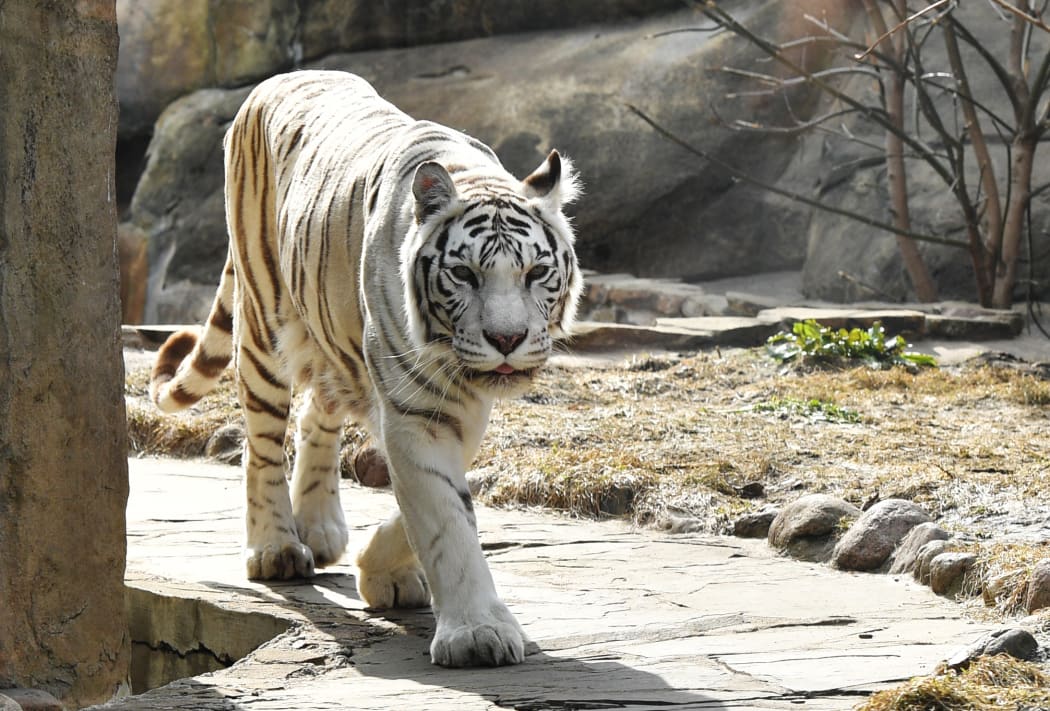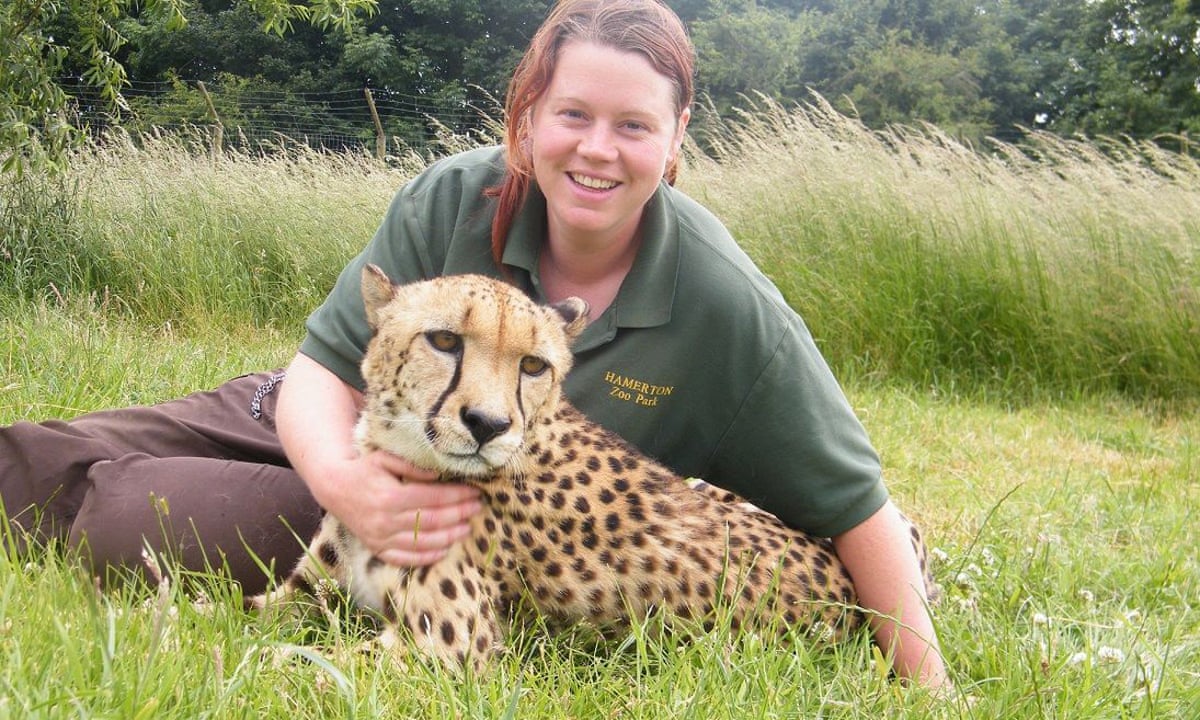How To Become A Zoo Keeper?
페이지 정보

본문

"The greatness of a nation and its moral development can be evaluated by the way its animals are dealt with." - Mahatma Gandhi

Do you like animals and dream of operating in a zoo? Zoo keepers are type in safeguarding wildlife and caring for animals. At places like the Zoological Society of London (ZSL), over 20,000 animals get the care they require from experts.

To become a zoo keeper, you need hard work, education, and a love for animals. This task is interesting, letting you deal with many species and aid with essential preservation work. If you're into wildlife or animal welfare, zookeeping might be best for you.
Beginning your zoo keeper profession indicates discovering what's required. This guide will cover education, experience, and more. It's all you require to know to start a fulfilling zookeeping profession.
Comprehending the Role of a Zookeeper
Exploring what a zookeeper does exposes a function loaded with obstacles and rewards. They concentrate on animal welfare and conservation. Zookeepers strive to keep animals healthy and delighted in their care.
Daily Responsibilities and Tasks
A zookeeper's day is filled with essential jobs:
- Preparing meals that fulfill each animal's nutritional requirements
- Cleaning enclosures to keep them tidy and safe
- Watching over animal health and behaviour
- Offering medications and treatments as needed
- Producing activities to keep animals mentally sharp
Workplace and Conditions
Zookeepers work outside in all kinds of weather. They handle both indoor and outdoor spaces. The job needs being physically fit and able to handle the needs of looking after animals.
"Being a zookeeper is more than a job - it's a passionate dedication to animal care and preservation."
Kinds of Animals and Specialisations
Zookeepers can specialise in lots of animal groups:
- Primates
- Big cats
- Marine mammals
- Reptiles
- Birds
Your function may include dealing with 2-5 various animal species. This requires a lot of understanding and the ability to adapt.
Necessary Skills and Personal Qualities for Zoo Keeping
To be a top zookeeper, you need more than just a love for animals. Your job will be tough and need you to manage animals and individuals well. You'll likewise need to comprehend animal behaviour.
What zoos try to find in individuals consists of:
- Exceptional perseverance and psychological durability
- Strong physical conditioning and stamina
- Eager observation abilities
- Ability to remain calm under pressure
- High level of empathy towards animals
Getting hands-on experience is crucial to mastering this role. You'll need to reveal:
- Advanced understanding of animal care strategies
- Proficiency in animal handling and safety procedures
- Effective communication with both animals and human visitors
"A great zookeeper links science, empathy, and preservation in every interaction with animals."
You must understand about animal nutrition, behaviour, and standard vet care. Most zookeepers learn through training, volunteering, and ongoing knowing.
Zookeeper work is not simply a task. It's a huge dedication to teaching about wildlife and assisting preservation. Your enthusiasm and effort will make you stand out in this fulfilling career.
How to Become a Zoo Keeper
Starting a profession as a zookeeper needs mindful planning and education. You should initially understand the academic needs and training paths. These will turn your love for animals into a task.
Educational Requirements
To be an excellent zookeeper, you need a strong academic base. Most tasks search for certain qualifications:
- At least 5 GCSEs at grade 4 or above, English, mathematics, and science
- A levels or college certifications
- A college degree in biology or animal science
- Level 3 Diploma in Animal Management
Essential Certifications
Getting unique accreditations can really help you in your zookeeper profession. Important ones include:

- Diploma in Management of Zoo and Aquarium Animals (DMZAA)
- Zookeeping Level 3 Diploma (RQF)
- Animal managing certificates
- Emergency treatment credentials
Training Programs and Apprenticeships
Getting hands-on experience is type in zookeeper training. Many locations provide great chances:

- Unpaid apprenticeships at wildlife parks
- Internship programmes at widely known zoos
- Practical training at places like Colchester Zoo and Dartmoor Zoo
- Volunteering to acquire real-world skills
Pro pointer: Create a detailed portfolio to show your animal care abilities. It will help you in job applications.
Structure Relevant Experience in Animal Care
Gaining hands-on experience is key for those wanting to be zookeepers. The task is really competitive. So, it's essential to start building a strong base in animal care.
Your journey starts with finding ways to work directly with animals. This is a strategic action.
"Experience is the very best teacher in animal care" - Wildlife Conservation Experts
Here are effective ways to gain experience dealing with animals:
- Volunteer at local animal shelters to develop standard animal handling skills
- Seek internships at wildlife rehabilitation centres
- Explore part-time positions at veterinary centers
- Contact your local zoo for possible volunteer opportunities
Offering is a great method to learn about animal behaviour and care. Many zoos and animal shelters are trying to find individuals who want to discover. These locations offer excellent opportunities to get hands-on experience and reveal your devotion to animal welfare.
Here are some tips to take advantage of your experience:
- Keep a record of your skills and interactions
- Connect with professionals in animal care
- Request for referrals and letters of recommendation
- Stay relentless and reveal your real enthusiasm
Keep in mind, useful experience makes you stick out in the zookeeping world. Each time you work with animals, you find out more. This increases your opportunities of getting a job in animal care.
Career Pathways and Professional Development
Starting a career as a zookeeper is exciting. It provides many opportunities to grow and specialise. Your journey begins with comprehending the different paths in this field.
Entry-Level Positions
Entry-level jobs in zookeeping are an excellent start. They provide you hands-on experience. Zoos search for prospects with:
- Level 2 Diploma in Animal Care (minimum certification)
- GCSEs in English and a scientific subject
- Volunteer experience at animal shelters or farms
Profession Progression Opportunities
As you acquire experience, your profession can grow. You can move up to:
- Junior Keeper
- Senior Keeper
- Team Leader
- Expert Roles
"Continuous knowing and useful experience are crucial to advancing in your zookeeping profession."
Specialised Roles
You can likewise choose special areas like:
- Conservation breeding programs
- Animal training
- Wildlife research
- Educational outreach
About 25% of zookeepers get advanced degrees in zoology or animal preservation. Getting Level 4 credentials can enhance your chances for senior functions and research.
Working Hours and Physical Demands
Becoming a zookeeper implies you'll work more than just regular hours. You'll face tough physical challenges and need to be versatile, including weekends and holidays. Zoos are open every day, so you'll typically work when others unwind.
"Zoo keeping is not a normal 9-to-5 job-- it's a lifestyle of dedicated animal care and dedication."
This job is physically demanding. You'll work outside in any weather, raising heavy items over 50 pounds. Your jobs may consist of:
- Early morning feeding schedules
- Cleaning animal enclosures
- Preparing specialised diets
- Performing health checks
- Maintaining complicated habitats
Shifts can start as early as 5 AM and go late into the night. You'll be on your feet most of the time, moving in between animal zones. Weekends and holidays are part of the job, requiring great deals of stamina and zoo devotion.
Despite the difficulties, this task has excellent rewards. You'll grow strong, both physically and emotionally. You'll also make amazing connections with incredible animals.
Health And Wellness Considerations
Being a zookeeper includes its own set of challenges. It's important to know how to keep both animals and staff safe. This means following stringent health and wellness rules.
Zookeepers face a special environment where safety is key. Studies show that health and safety are now as essential as the zoo's primary work.
Risk Management Strategies
There are a number of ways to manage dangers in zoos:
- Daily checks of animal enclosures for threats
- Counting animals at the start and end of shifts
- Watching how visitors act near animals
- Being ready for emergency situations
Animal Handling Safety Protocols
Knowing which animals are most harmful is important. Big animals like rhinos can be really risky. There have been cases where zookeepers got seriously harmed.
Safety isn't practically wearing equipment - it's about understanding animal behaviour and staying alert.
Individual Protective Equipment
Zookeepers need to wear the best equipment, consisting of:
- Special gloves for managing animals
- Strong shoes for grip and safety
- Clothes that protects against germs
Getting immunized against illness like hepatitis B and rabies is likewise crucial. It assists keep zookeepers healthy in their tough job.
Wage Expectations and Job Market
Thinking about a career in zoo keeping? It's essential to understand about incomes and the task market. The field is growing, with more opportunities in the UK.
Let's look at what zoo keepers can make at various stages:
- Entry-level zookeepers begin at about ₤ 14,000 a year
- Qualified ones make between ₤ 16,000 and ₤ 22,000
- Senior zookeepers can earn up to ₤ 30,000 or more
The task outlook for zoo keepers is excellent. The sector is expected to grow by 5% in the UK by 2029. This indicates around 3,910 new tasks will be available.
"The Association of Zoos and Aquariums supports expert growth for zoo keepers," a report states.
Incomes differ based upon a number of things:
- Experience level
- Specialisation
- Where you work
- The zoo's size and type
While the pay might not be high, the happiness of working with animals is priceless. The typical wage is around ₤ 17,000. But, overall profits can be in between ₤ 13,000 and ₤ 27,000 a year.
Conclusion
Starting a career in animal care is an exciting journey. It needs devotion, passion, and a love for knowing. With over 350 zoos and wildlife locations in the UK, there are lots of task chances. You'll get to deal with incredible animals and help safeguard wildlife.
To be a zoo keeper, you require more than simply love for animals. You need to have a mutual understanding of biology, be able to communicate well, and always want to find out more. You'll gain hands-on experience, learn more about animal welfare, and establish a deep respect for nature. About 3,000 individuals in the UK have actually found fulfilling careers in this field.

Your success in zoo keeping comes from mixing science with a love for animals. Whether you're interested in mammals, birds, or marine life, this job lets you help with conservation. Every day will bring new obstacles and discovering chances that will improve your skills and knowledge.
If you enjoy animals and want to help safeguard wildlife, zoo keeping might be for you. Handle the obstacle, stay curious, and turn your enthusiasm for animals into a rewarding career.

- 이전글How Online Casino No Deposit changed our lives in 2025 25.02.25
- 다음글撥筋教學 For Great Sex 25.02.25
댓글목록
등록된 댓글이 없습니다.

